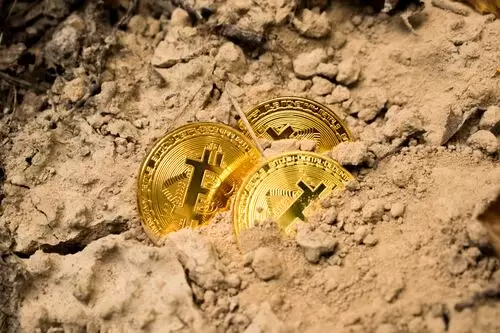Bitcoin, the groundbreaking cryptocurrency that has captured widespread attention, drawing both fervent admiration and rigorous examination, stands at the crossroads of immense popularity and critical evaluation. Among the multifaceted array of critiques leveled against Bitcoin, one issue of paramount significance is its ecological footprint.
This comprehensive article delves into the intricate and often contentious realm of Bitcoin’s environmental ramifications, meticulously dissecting genuine facts from the veils of misinformation, thereby shedding illuminating insights on the true extent of its environmental impact. Immediate Enigma transforms the crypto trading landscape, if you want to convert your cryptocurrencies into real cash.
Quick Overlook
Energy Consumption Debate
Reality of Bitcoin Mining
Bitcoin mining, the process by which new coins are minted and transactions are verified, has often been accused of consuming exorbitant amounts of energy. While it’s true that Bitcoin mining does require a substantial amount of computational power, the environmental impact has been sensationalized to some extent.
Critics often compare Bitcoin’s energy consumption to that of entire countries, painting a grim picture of its ecological footprint. However, this comparison is not entirely fair. Unlike traditional energy consumers like countries, Bitcoin mining is decentralized and often takes advantage of excess or stranded energy that would otherwise go to waste.
Renewable Energy Integration
A lesser-known fact is that a significant portion of Bitcoin mining operations are powered by renewable energy sources. Miners are increasingly setting up shop near hydroelectric dams, solar farms, and wind power facilities to tap into clean energy. This strategic move not only reduces the carbon footprint associated with Bitcoin mining but also contributes to the growth of renewable energy adoption.
E-Waste Concerns and Technological Progress
E-Waste Generation
Another aspect of Bitcoin’s environmental impact often overlooked is the issue of electronic waste or e-waste. Traditional hardware used for mining can become obsolete relatively quickly due to the rapid advancement of technology. This leads to concerns about the disposal of old mining equipment and the potential for generating e-waste.
However, the e-waste concern is not unique to Bitcoin. The entire electronics industry faces similar challenges. Moreover, as the industry evolves, more energy-efficient mining hardware is being developed, minimizing the impact of e-waste over time.
Innovations in Sustainable Mining
Efforts are underway to make Bitcoin mining more sustainable. Researchers and engineers are exploring new consensus mechanisms, like Proof of Stake (PoS), which doesn’t rely on energy-intensive calculations. Additionally, initiatives to recycle and repurpose mining hardware are gaining traction, reducing the burden on e-waste management.
Banking and Financial Sector Comparison
Unveiling the Energy Usage of Traditional Banking
While critics often lambaste Bitcoin’s energy consumption, they tend to overlook the significant energy usage of traditional banking systems. Brick-and-mortar bank branches, data centers, and ATMs collectively contribute to substantial energy consumption. This raises the question: is Bitcoin’s energy use truly an outlier, or is it simply drawing attention to a broader issue within the financial sector?
Potential for Disruption
Bitcoin’s decentralized nature has the potential to disrupt traditional financial systems that rely heavily on energy-intensive processes. If the adoption of cryptocurrencies leads to streamlined financial operations and reduced reliance on resource-intensive banking infrastructures, the long-term energy savings could be substantial.
Balancing Environmental Concerns and Technological Advancement When Discussung Bitcoin’s Environmental Impact
Path Forward
It is undeniable that Bitcoin’s energy consumption is a topic that warrants attention. However, it’s crucial to view this issue within the context of broader technological and environmental trends. As technology advances, so too does our ability to optimize energy consumption and mitigate environmental impacts.
Collaborative Solutions
Instead of pitting Bitcoin against environmental concerns, a more productive approach would involve collaboration between the crypto community, renewable energy advocates, and environmental experts. By working together, innovative solutions can be developed that ensure the growth of cryptocurrencies aligns with sustainable practices.
Conclusion
Amidst the ongoing discourse surrounding the environmental repercussions of Bitcoin, it becomes imperative to meticulously distinguish between verifiable information and unfounded conjecture. While the legitimate apprehension over Bitcoin’s energy consumption holds weight, it becomes paramount to contextualize this concern within a broader perspective. The dynamic cryptocurrency sector is swiftly evolving, marked by pioneering strides in mining technology and innovative approaches to energy procurement. As humanity continues its exploration of the boundless potential harbored by blockchain technology and digital currencies, a harmonious trajectory must be charted, one that harmonizes ecological reverence with the relentless march of technological advancement.
